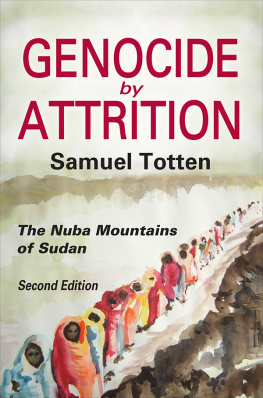
Israel's Wars of Attrition
This book analyzes the way Israel has coped with nine wars of attrition from the 1950s to the recent Second Lebanon War (2006), questioning the belief that Western democracy cannot sustain prolonged wars of attrition.
Challenging Israel with attrition has been compatible with the Arab way of war, which emphasizes staying power, and with the belief that democracies cannot tolerate wars of attrition, either economically or psychologically. Israel for its part developed a self-image of incapacity to sustain prolonged wars, committing itself to a traditional offensive approach to blitzkrieg , whenever possible. The book offers an account of nine wars of attrition that Israel was involved in over almost 60 years, from Palestinian infiltration and fedayeen activities against Israel in the early 1950s, through to the Second Lebanon War in 2006. The author uses these cases to challenge the myth that Israel cannot afford to become involved in a draining war of attrition.
Focusing on central aspects typical of Western democracies engaged in wars of attrition: operational effectiveness; the societal staying power; the economic burden of the war; moral dilemmas; and conflict management problems the book challenges the myth that Israel cannot afford to become involved in a draining war of attrition, while at the same time highlighting the fact that in its wars of attrition Israel has not always succeeded in avoiding undesired escalation.
This book will be of much interest to students of strategic studies, Israeli history, Middle Eastern politics, and security studies in general.
Avi Kober is a member of the Department of Political Studies at Bar Ilan University, Israel and is a Senior Research Associate with the BESA Center for Strategic Studies.
Series: Middle Eastern Military Studies
Series Editor: Barry Rubin
Interdisciplinary Center Herzliya, Israel
The Israeli Military and the Origins of the 1967 War
Army command vs. political leadership, 19631967
Ami Gluska
Israeli Counter-Insurgency and the Intifadas
Dilemmas of a conventional army
Sergio Catignani
Israel and its Army
From cohesion to confusion
Stuart A. Cohen
The Palestinian Military
From the mandate to the Palestinian authority
Hillel Frisch
Iraqs Armed Forces
An analytical history
Ibrahim Al-Marashi and Sammy Salama
Israels Wars of Attrition
Attrition challenges to democratic states
Avi Kober
Israel's Wars of Attrition
Attrition challenges to democratic states
Avi Kober
First published 2009
by Routledge
2 Park Square, Milton Park, Abingdon, Oxon OX14 4RN
Simultaneously published in the USA and Canada
by Routledge
270 Madison Ave, New York, NY 10016
Routledge is an imprint of the Taylor & Francis Group, an informa business
2009 Avi Kober
Typeset in Times by Wearset Ltd, Boldon, Tyne and Wear
Printed and bound in Great Britain by TJI Digital, Padstow, Cornwall
All rights reserved. No part of this book may be reprinted or reproduced or utilized in any form or by any electronic, mechanical, or other means, now known or hereafter invented, including photocopying and recording, or in any information storage or retrieval system, without permission in writing from the publishers.
British Library Cataloguing in Publication Data
A catalogue record for this book is available from the British Library
Library of Congress Cataloging in Publication Data
Israel's wars of attrition: attrition challenges to democratic states/Avi Kober.
p. cm.
1. Attrition (Military science)Israel. 2. IsraelMilitary policy. 3. DemocracyIsrael. I. Title.
U163.K63 2009
355.4dc22
2009003489
ISBN10: 0-415-49243-2 (hbk)
ISBN10: 0-203-87406-4 (ebk)
ISBN13: 978-0-415-49243-0 (hbk)
ISBN13: 978-0-203-87406-6 (ebk)
Contents
This book deals with the most important question of contemporary military strategy: how can democratic states fight protracted wars of attrition. For as advanced societies have either settled disputes or become too wary of the weariness of inter-state conflict, a new type of warfare has arisen called asymmetric in which a weaker, often ideologically motivated, side uses that fact to seek victory.
One of the main ways it does so is to deny the stronger side victory, in contrast to all earlier wars, by simply refusing to surrender or stop fighting no matter what the cost. Appeals to the conscience of the adversary, the use of its own civilian population as shields and martyrs, and manipulation of international media and public opinion are among the techniques in this strategic equivalent of judo.
Apparent experience has shown us the dominant thinking on this issue has tended to become that developed societies cannot long stand such wars of attrition including wars involving the systematic use of terrorism by the other side and therefore must lose them. The idea is that Western or developed societies are unwilling to pay the price in cost, casualties, and stress to moral principles that sustaining and winning such a war requires.
Avi Kober, however, takes the case of Israel to show that this is not the case. He points out that the economic cost of such wars is small given not only the overall fiscal strength of Western democracies but also compared to the cost of alternatives. Moreover, while the strategies of weaker parties employing asymmetric techniques try to take advantage of their technological inferiority, the use of proper technology by the stronger side which is also stronger in its ability to develop and deploy more advanced methods can also turn the tide.
Despite self-criticism, indeed perhaps in large part due to reforms and revisions of behavior built on self-criticism, Israel has adjusted to this situation. That this is no abstract question can be seen by the fact that both the war with Hezbollah in 2006 and that with Hamas in 2009 hinged on precisely these matters.
By examining Israels experience with several such wars and long-term conflicts, Professor Kober points out lessons of the greatest value and immediacy. Consequently, this book is an important contribution not only to the academic literature on modern strategy and military history but also of the greatest practical importance. It is a welcome addition to our series on strategic issues in the modern Middle East.
Barry Rubin, series editor
My sincerest gratitude is extended to my colleagues Stuart Cohen, Gil Feiler, Efraim Inbar and Yaacov Lifshitz, who patiently read chapter drafts, each contributing generously from his personal and professional knowledge, and to Rebecca Goldberg for her fine editing. Their important comments were very helpful.
The theoretical chapter is partially based on a paper presented at the Program on International Politics, Economics and Security, the University of Chicago. I wish to thank Moshe Grundman, Aharon Klieman, Charles Lipson, John Mearsheimer and Bradley Thayer for their thoughtful comments and criticism on earlier drafts of this paper.
I am also grateful for the financial assistance of the Israel Science Foundation (founded by the Israel Academy of Sciences and Humanities).











